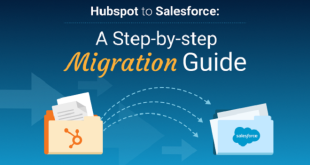Did you know that the fastest internet speed ever recorded was over 300 terabytes per second?
An internet connection in this day and age is not optional, it’s necessary. Internet services power our world, whether our jobs or the services we use in our leisure time. But the question is, what internet speed is best for you?
If you’ve done a speed test, you likely found your speeds to be lacking. But when you upgrade, you don’t want to waste money on fiber internet if that’s more than enough.
In this guide, we’ll help you figure out how to get the right internet speed for your situation.
Understanding Internet Connection Speeds
Every ISP (internet service provider) will usually have a few tiers for pricing. Their basic package will tend to be the most affordable, but also the slowest. These cheaper packages may also have a limited data amount.
For starters, ask your provider what speed you are getting. Then do a speed test to verify. In some cases, an ISP may actually provide more or less depending on network fluctuations.
Internet packages tend to come in the following sizes:
- 10mbps (the slowest connection, but still fast enough for basic tasks)
- 100mbps (a standard connection good for most tasks)
- 500mbps (a significantly faster connection that can handle some high-data tasks
- 1gbps/1,000mbps (the fastest speed with the lowest latency, best for high-data tasks)
Keep in mind that gigabit speeds are only available via fiber. Fiber internet is the most expensive option around, but you get the best internet speeds.
Mobile Internet Options
As a general rule, mobile internet is more expensive. The benefit is that you can have that internet almost anywhere in the world. If you’re in need of RV internet, there are options for you, too.
Like with hardline internet, it will get more expensive for faster speeds. Also, unlimited data plans are much more expensive and rare. Mobile data plans are best for low-data users unless you really need the fastest speeds while on the go.
What Will You Use Your Internet Connection For?
The first question to ask yourself is what types of activities you will engage in. Faster internet speeds will be crucial for certain activities. Others may only require upgrading to the next tier that your ISP provides.
Fiber speeds allow you to get gigabit speeds. These are ideal for the following activities:
- Streaming movies and TV shows in ultra-HD 4K and above
- Do regular video calls with people around the world
- Competitive gaming that requires minimal ping
- Making regular large downloads, such as games
- A work-from-home connection that needs to be reliable
- Using work applications like Zoom or a remote desktop
- Hosting an at-home server, such as for cloud storage
Activities That Don’t Require Gigabit Speeds
However, you may not need the best fiber internet plan available if you do the following:
- Streaming movies and TV shows in ultra-HD 4K and below
- Do occasional video calls, such as with family
- Play casual games
- Use the internet only for basic work-from-home tasks like browsing or email
- Only need minimal data for basic internet browsing
Benefits of Fast Internet That You May Need
Internet speeds are measured in megabits per second. That means that every second, your ISP can send X amount of data down the pipe. The fastest internet speeds will give you a lot of benefits that many people don’t realize.
Low Latency
Latency refers to how long it takes before you get a response from a server. The best example of this is in an online game.
If you click the mouse to fire a weapon in an online game, then that command has to go to the server first. While it does only take milliseconds for this to happen, those milliseconds matter. If the latency is too long, then you will notice a considerable delay before the server registers your move and your weapon fires.
This isn’t just about gaming. Many internet-heavy applications depend on a snappy server response to function optimally. You may have a work program that stutters without fast speeds.
High Bandwidth
Bandwidth is the amount of data you can send or receive per second. This is different from speed since it’s not about how fast you can move that data.
High bandwidth means you can transfer large quantities of data per second. You can see this when downloading a video game. The video game may be over 100GB in size, which could take hours on a 10mbps connection.
However, with gigabit speeds, a download may only take a few minutes. You can download a movie in seconds.
Better Network Reliability
A common issue with slower connections is that they take a long time to connect to servers. Sometimes they have to send the same request multiple times, which slows things down further. This is especially detrimental with online video games since high ping can slow down the server for everyone.
Fast internet speeds aren’t just snappy, they are more reliable. VPN connections happen faster. Calls connect faster, and you get a quicker response when browsing.
In short, you’ll get far fewer page errors or failed server requests. There’s no need to worry about payments not going through, or connection issues with work.
Find the Right Internet Connection for You
A fast internet connection can make a huge difference in your leisure time or your workflow. However, you want to choose the right speed for you. Read the list above and evaluate your internet needs, then purchase an internet speed that works for you.
Follow our blog for more tech tips.
 Naasongs.fun
Naasongs.fun



